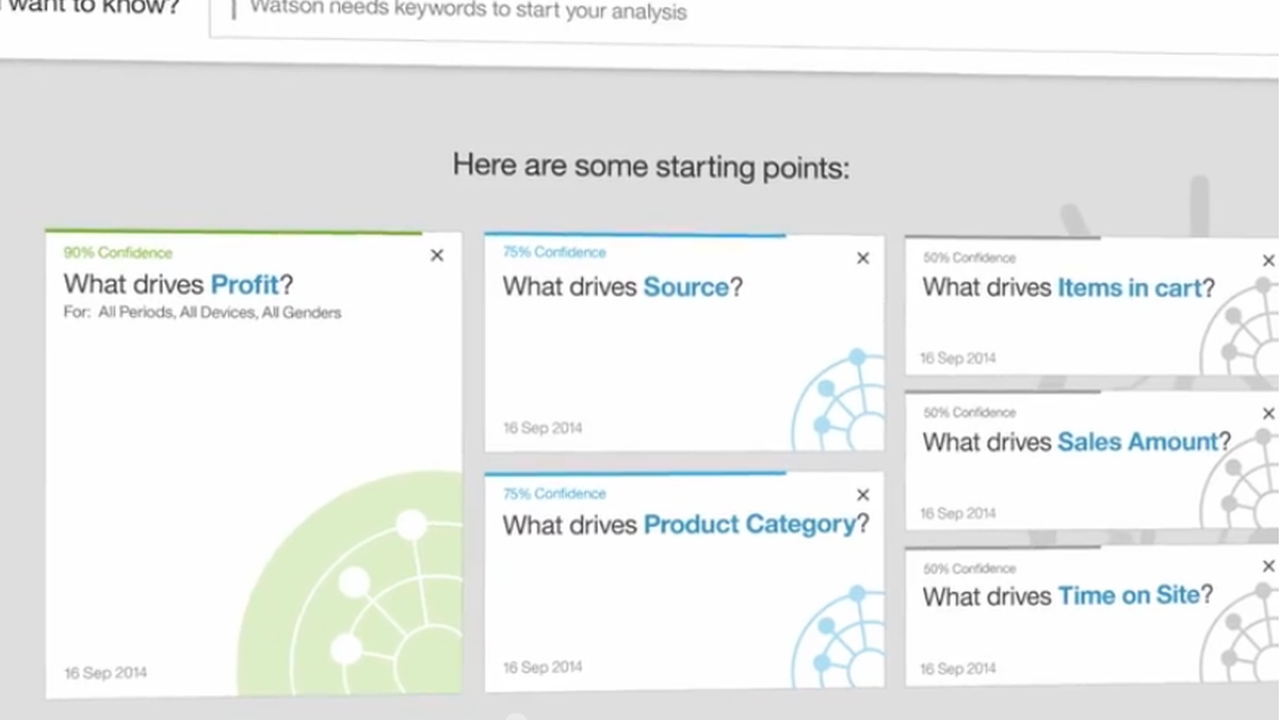IBM brings big data to all with free Watson-based analytics tool
Adopts freemium model

IBM has announced that it will provide a cloud-based service based on its award-winning Watson supercomputer solution.
Watson Analytics will, according to Big Blue, put advanced predictive business analytics within reach of anyone within a business regardless of its size, not just data scientists and analysts.
By simplifying its use and offering it as a freemium service, IBM hopes that it will make advanced and predictive analytics "easy to acquire and use" for a much bigger audience.
What that means is rather than having to learn arcane formulae and algorithms to get an answer, users will be able to ask questions as "natural" as "which deals are most likely to close?", making its usage as intuitive as Apple's Siri.
Big data for dummies
Users will need to load their data prior to the analysis. The first iteration of Watson Analytics is a cloud-based service designed to run on desktop PCs and on mobile devices later this year (the press release is ambiguous as to whether it will be browser based or an app).
"We have eliminated the barrier between the answers they seek, the analytics they want and the data in the form they need." Bob Picciano, SVP, Information and Analytics group at IBM said, before adding "The combination of Watson-fueled analytics to magnify human cognition, the vast potential of big data, and cloud-scale delivery to PCs, smart phones and other devices is transformational."
Big Blue has confirmed that it will be investing $1 billion (about £700 million, AU$1.1 billion) in Watson, which runs on IBM's Soft Layer cloud services.
Are you a pro? Subscribe to our newsletter
Sign up to the TechRadar Pro newsletter to get all the top news, opinion, features and guidance your business needs to succeed!
Watson Analytics will be available as a beta over the next few weeks and as a freemium model in November.

Désiré has been musing and writing about technology during a career spanning four decades. He dabbled in website builders and web hosting when DHTML and frames were in vogue and started narrating about the impact of technology on society just before the start of the Y2K hysteria at the turn of the last millennium.










